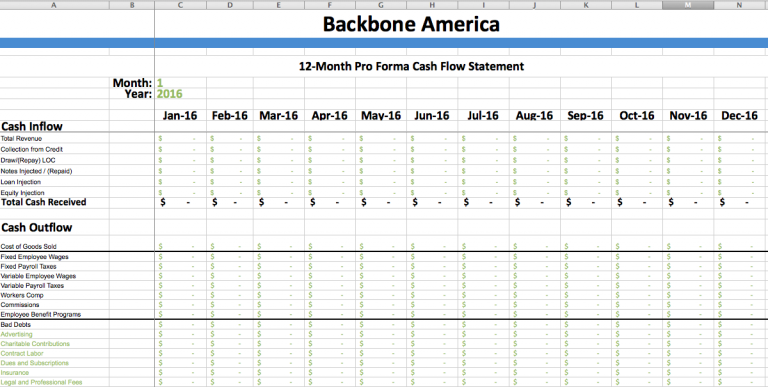When it comes to types of company ownership, there are no one-size-fits-all solutions. There are 3 main types of company ownership or business structures, along with a couple of sub-type. Each type has specific legal and tax implications. Therefore, it’s important to choose a structure that best meets your individual situation. I often encourage clients to consult with their accountant and/or lawyer, as those two individuals tend to have a firm understanding of the legal structures, as well as special insight to your personal financial and/or personal factors. One thing I will tell you is this: Before you establish your business you’ll need to determine which of the business entity types you plan to register.
Sole Proprietor

Often times, people are concerned about forming a sole proprietor because they fear possible legal ramifications down the road. I tell my clients not to rule out a sole proprietor because of this. Rather, I encourage them to seek business insurance, as it can offer you the protection you seek while also keeping this simple business structure. Even though it’s not required, I highly encourage owners to keep their personal and business affairs separate despite the aggregation.
Limited Liability Company (LLC)
The LLC is a bit of a hybrid between the partnership and corporation, both of which I’ll talk about next. If used effectively, the LLC can provide some of the liability protection of a corporation, while keeping the operational flexibility of the partnership. In addition, the LLC can be structured to file under corporate or personal taxes.
One caution I mention to my clients is the need to keep their business and personal affairs separate with an LLC. Whereas everything is aggregated with an SP, meaning there’s no real difference between the business and person, the LLC does have a clear separation, or at least you should keep the separation clear. Not doing so can put your limited liability protection in jeopardy.
Partnership (sub-category)
Though partnerships aren’t considered the main business structure, I still want to mention it. Partnerships are diverse in that they can vary depending on the arraignments made between the parties and the responsibility each partner has toward the business. I highly encourage my clients to have a partnership agreement that clearly spells out each partner’s duties, as well as buyout clauses.
C Corporation
A corporation is the least common of the types of company ownership. Whereas private individuals own sole proprietorships, LLCs, and partnerships, shareholders own corporations. The C Corporation can have an unlimited number of shareholders.
One point I like to mention to my clients is that if they work for the corporation, they are employees who receive wages just like other workers. This also means that when it comes to legal actions against the corporation, the employees are not liable. Likewise, the shareholders are not held liable for a corporation. Instead, the corporation, which is a legally independent entity, is responsible for the actions and debts incurred by the business.
When all is said and done, once you create a C corporation, you can be the only shareholder, you can be one of many shareholders. You can choose to work for the corporation or choose not to work for the corporation and just receive the benefits of being a shareholder. Additionally, you can also sell your shares and even choose to work for the company as an employee without holding ownership.
Lastly, when it comes to taxation, the C corporation is taxed on the earnings, then the shareholders are taxed on their dividend distribution. This is where the concept of double taxation comes from.

 S Corporation (sub-category)
S Corporation (sub-category)
An S corporation is very much like a corporation in terms of liability. One main difference between an S corporation and C corporation is in regards to taxation. While a C corporation experiences double taxation (the company is taxed on income and the shareholders are taxed on dividends), the S corporation passes the earnings to the shareholders, who are responsible for the taxes on an individual level. One other difference is the number of shareholders allowed with an S corporation. The C corporation can have infinity and beyond shareholders. On the other hand, the S corporation is limited to just 75.
Final thoughts on Types of Company Ownership
Often clients ask me which business entity is right for them. My answer is always along the lines that it depends on their personal and financial situation. Each structure has pros and cons to it. Again, I stress the importance of visiting with your accountant and/or lawyer to determine which structure best fits your unique situation. For more tips on starting your business, try these articles.
What’s your favorite business structure and why?








This is some very interesting information. I always wondered what these abbreviations stood for and now I understand.
Is “C” the same as “cc” and what does “Ltd” stand for after the company name?
Thanks for sharing
Helen
The types of company ownership is a very complicated topic for me. All the abbreviations, all the information, and remembering it is just something really difficult for me. However, this page does a really good job at describing everything and providing every detail about all that I could possibly need to know about company ownership. Thank you so much for your help.
One thing that’s nice about choosing a company ownership type is you only have to do it once per business. After that’s it’s just a matter of running your business the way you like. Though it’s important to understand the financial side, you can leave the taxes to your accountant.
Great post, lots of quality information here for anyone getting ready for a start up. I learned a few things here myself. I never have studied up on a C corporation. Was surprised about the tax structure and the number of stock holders.
I’m going to file this one away for future reference.
Thanks for the post.
Glad it was useful, Keith. Just as a reminder: the S Corporation is usually more common for small businesses, and they don’t have to worry about double taxation. I don’t want to push anyone in any particular direction, but often times the S Corp makes more sense than a C Corp for small businesses. I will say it’s not as straight forward to switch from one corporate tax structure to another. So, it’s important to make a good choice the first time around.
A lot of times, I think of the C Corp as being a great option for a company that wants that complete separation but has numerous stakeholders or plans to have numerous stakeholders that exceed the limitations of the S Corp.
Great information. Often times you hear these terms thrown out there and a lot of people don’t know what they mean or the descriptions sound very complicated.
You broke it down very simply. I also like the fact that you emphasize the need for people to check with an accountant and/or lawyer to help them decide which business structure is best for them.
Thank you for the information.
Thanks for stopping by Laura. There’s really not a lot to the different types of business structures. Without fail, my clients will ask me which one is best for them, and I have no clear answer. Sometimes asking them how they feel about each type or why they’d go a particular direction allows me to add a bit of clarification, so they can make an informed decision. And of course, there’s always their accountant and/or lawyer, which everyone should have in the back of their pocket.
As a side note, having an accountant or lawyer doesn’t mean you have to use the non-stop. It just means you have someone to turn to when you hit those tough questions or concerns.